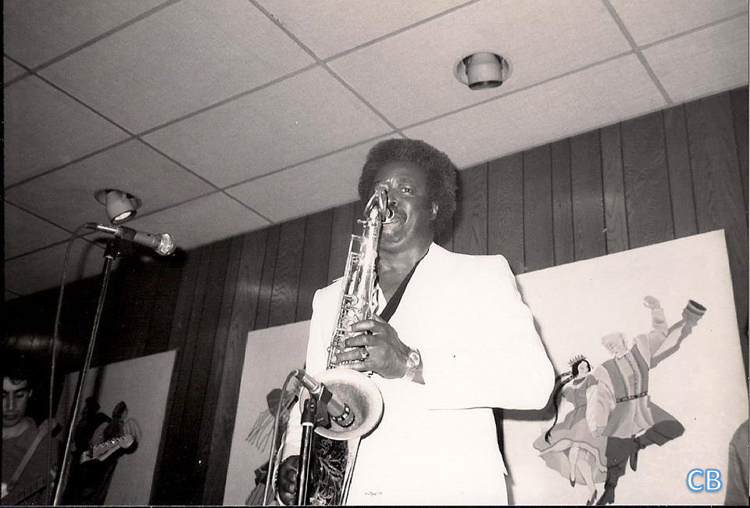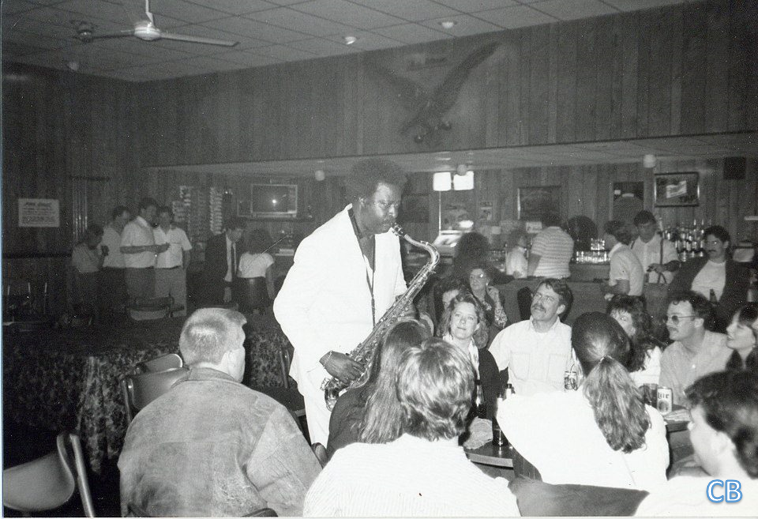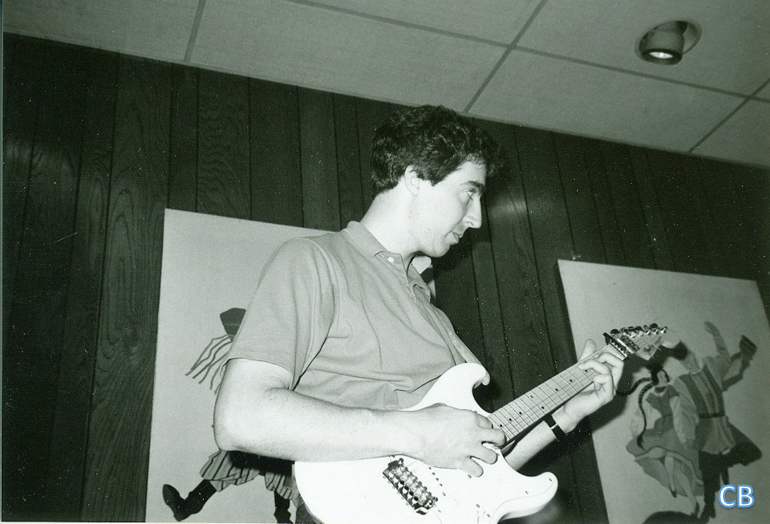Abb Locke: Chicago Blues Journeyman Saxophone Giant
The Z.B. Falcons Club on South Bend, IN’s west side is a private polish club that is part of the Polish Falcons Of America. The club has been in operation since 1896, and is located in an area of the city that arguably has seen better days. A car wash, liquor store, and wireless phone stores are its closest neighbors. The club hosts those members and guests wishing to enjoy a social drink and conversation, and offers fish fries, various other food events, corn hole tournaments, and other related activities.
The Z.B. Falcons Club, at one time, also hosted some amazing blues shows in a couple of its halls. Blues artists such as Nappy Brown, William Clarke, Lil’ Ed & The Blues Imperials, Phillip Walker, Anson Funderburgh & The Rockets with Sam Myers, along with other great blue performers played the venue. Even the legendary Sun recording artist, Charley Booker, played at the club. But, one of the best shows I ever witnessed at the club was in the late 1980s by Abb Locke, a legendary blues saxophone sideman who played and recorded with myriad of the blues’ giants, including Howlin’ Wolf, Willie Dixon, Eddy Clearwater, Otis Rush, Magic Sam, Willie Mabon, Koko Taylor, James Cotton, Albert Collins, Memphis Slim, Buddy Guy, Dave Weld and the Imperial Flames, and Elmore James, along with rock-n-roll titans such as Chuck Berry and The Rolling Stones. To say that my anticipation was high for Locke’s show is a classic example of understatement.
Backing Locke at the Z.B. Falcons Club was one of the finest of many local blues bands in the greater South Bend, IN area, The Moore Brothers Blues Band, an aggregation that included Tom Moore plying his vocal skills, harmonica proficiencies, and guitar talents. His brother, David Moore, a highly-accomplished acoustic and electric guitar performer, would be anchoring the guitar duties.
South Bend, IN has historically been a hotbed of blues saxophone. Junior Walker, the 1960s Motown recording artist, and collaborator with the rock group Foreigner in the 1980s, called the area home. Local exceptional blues and R&B saxophone players like Steve Toepp and Craig Rideout brought their respective skill sets to numerous local bands. And, George Thomas, a local public-school counselor, and superb blues and R&B saxophone entertainer, was always on-the-scene bringing his powerful playing to the public, with a tone and presence fitting a man of his similar physical characteristics. As it was, George Thomas would be on the bill with Abb Locke at the Z.B. Falcons Club in what would surely be a primer of blues and R&B saxophone.
Abb Locke was born in Arkansas in 1934, and found his early years, like so many blues artists before him, working in the fields, and obtaining only the most basic of formal education due to his familial agricultural obligations. After his father took a new wife, Locke made the decision to move into his biological mother’s home in Memphis. This was a pivotal time for young Locke, as he chose to join the high school band. Eventually in Memphis, and due to his growing saxophone abilities, Locke was able to appear in-performance on the radio with legendary bluesman B.B. King. Due to his continually growing skills on the saxophone, Locke, in time, won engagements of his own in nearby West Memphis.
Seeking greater visibility and opportunities, Locke elected to leave Memphis. He worked his way through Illinois, winding through Carbondale, Cairo, and Culp, finally settling into Chicago. It was here that Locke found the legion of Chicago blues artists with whom he would perform and record with over the course of his long blues career.
One of the most important alliances that Locke made during his time in Chicago was with Willie Dixon. As even the most casual blues fan knows, Dixon all but had Chicago locked-down with his authorship of blues songs, and his allegiance to many of the city’s famous blues labels, primarily with Chess Records. Over Locke’s many years in Chicago, he appeared on 57 albums by various blues bluesmen and blues women, demonstrating his respected position as a musician, and as a sideman who was reliable, and in the hard-partying rough world of the Chicago blues, someone who was also always sober. Simply, Locke was highly in-demand.
Locke also self-released on album, the outstanding Big City Blues. Plus, a very good 1983 45rpm release on the Rooster Blues label by Locke with Otis Rush in support, “Blues Party” b/w “Cleo’s Back” again underscored Locke’s commendable talents.
Locke enjoyed a number of very unique performing opportunities in his long career, including performing with the awe-inspiring trio of legendary blues guitarist Roy Buchanan, revered roots musician Lonnie Mack, and Texas blues great Albert Collins, at New York’s eminent Carnegie Hall. Locke also had the good fortune to play with The Rolling Stones for Mick Jagger’s birthday in front of a crowd said to be near 80,000.
Locke was fortunate later in life to find work with Dave Weld & The Imperial Flames, a position that lasted for 18 years. Due to his affiliation with Weld’s band, Locke was able to record with the group on a collection released on the renowned Delmark label.
Locke did receive his due in 2017 when he was inducted in the Chicago Blues Hall Of Fame.
I can still see and hear Locke working the Z.B. Falcon Club hall, strolling the crowd taking the music directly to the audience, and duetting with George Thomas. Resplendent in his white suit, Locke cut an impressive figure that evening, taking all of us in attendance on a journey through his cumulative blues career with his wide range of dexterities. It was as if school were in session with one of the blues’ most accomplished artists, and we were his pupils in rapt attention.
Meeting Locke later was a sheer joy. Sometimes it is hard and disappointing to meet your blues heroes. I have a memory bank devoted to those occurrences. But, such was not the case with Locke. He was kind, genial, and well-spoken. He was excited to meet his fans and share with us the wealth of his extensive blues skill set. It was a joy to experience Locke unfurl his blues vision before our eyes.
Locke’s performance that evening still resonates loudly in my mind for all the right reasons. Locke was truly a bluesman of class and dignity, and that evening, eager to bring his blues vision to us, enjoying it to the fullest as we basked in our revelry of his sharing of it.





